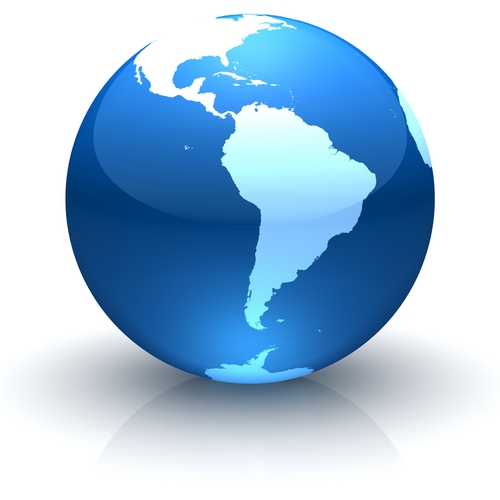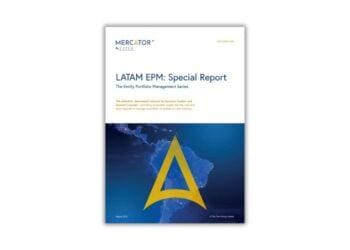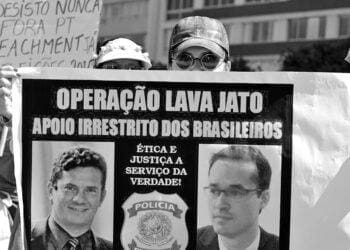This article was republished with permission from FCPAméricas Blog, for which Matteson Ellis is founder, editor and regular contributor.
In the world of FCPA enforcement, 2013 was a big year. Some have pointed out, “After getting off to a slow start, with no official corporate FCPA settlements announced in the first quarter, 2013 witnessed two of the top 10 biggest settlements of all time.” Others cite “a nearly fourfold increase in the size of the average corporate fine.”
2013 was also a big year for FCPA enforcement in Latin America. FCPAméricas outlines below the top five FCPA stories of last year in Latin America and why they are so important.
- EMBRAER: The first reported FCPA investigation of a Latin American multinational. While there are endless examples of FCPA investigations of Latin American subsidiaries of global companies, Embraer is the first known “Multilatina” to be investigated by U.S. authorities for FCPA violations. The airline manufacturer received an SEC subpoena back in 2011, and the government’s investigation is ongoing. Yet 2013 proved to be an important one for Embraer’s FCPA story. We learned more detail about the underlying allegations, including the way that bribes to Dominican Republic officials were allegedly structured and the fact that payments were allegedly authorized by senior Embraer officials. To many in the region, the Embraer case has been a wake-up call to the extraterritorial reach of the FCPA and how the U.S. Government can target non-U.S. companies for bribery in other non-U.S. countries . Perhaps 2013’s most striking Embraer development is that Brazilian authorities have reportedly launched their own investigation and are seeking mutual legal assistance from the United States. Such developments signal a new enforcement landscape in the region – one that “Multilatinas” and other global companies operating in Latin America must not ignore.
- RALPH LAUREN: Parent criminal liability for the actions of Latin American subsidiaries. The DOJ and SEC both reached settlements with Ralph Lauren Corporation in 2013 for the customs-related bribes of its Argentine subsidiary between 2004 and 2009. Those settlements resulted in more than $1.6 million in fines and penalties – a reduced amount given the company’s extensive cooperation. FCPAméricas has previously discussed the high risks associated with customs in Latin America. The most remarkable aspect of this enforcement action is that the U.S. parent was found both criminally and civilly liable for the actions of its indirect, wholly-owned, foreign subsidiary, despite the apparent lack of evidence of parent knowledge, participation, authorization, direction or control. This issue was discussed in a detailed article by Shearman & Sterling’s Philip Urofsky, after which one DOJ official publicly stated that there was in fact evidence of some participation by an officer of the parent company.
- DIRECT ACCESS PARTNERS: The U.S. government criminally charges a Latin American public official. Last year, three officials of the Wall Street broker-dealer Direct Access Partners were charged with and pleaded guilty to FCPA, Travel Act and money laundering offenses. The scheme involved kickbacks to a high-level official of Venezuela’s state-owned development bank, Banco de Desarrollo Económico y Social de Venezuela (BANDES), in return for business. Of particular note is the fact that the Venezuelan official, the recipient of the bribes, was arrested when traveling in the United States and criminally charged with corruption-related offenses.
- BIZJET: Executives going undercover and wearing wires. In 2013, the DOJ criminally charged four executives of BizJet for their participation in a scheme to bribe Mexican and Panamanian officials. This was a follow-on to a 2012 settlement by BizJet and its corporate parent, Lufthansa Technik AG . Two of the executives pleaded guilty and two are “believed to remain abroad.” These days, FCPA actions rarely end with a resolution against the company. Enforcement officials have explicitly stated their interest in proceeding against responsible individuals too. BizJet shows how far they are willing to go: the DOJ obtained cooperation from an executive that included working undercover and secretly recording conversations with former BizJet executives and additional subjects of the DOJ’s investigation.
- STRYKER: Investigation costs higher than the FCPA penalty itself. The medical device company Stryker was subject to a $13 million FCPA penalty for improper payments in multiple countries, including Mexico and Argentina. Its violations, described in detail here, involved use of lawyers to make payments, bribes disguised as charitable donations and honoraria to doctors. Most notable might be the fact that the cost of the company’s internal investigation itself is reported to be more than $75 million, which is almost six times more expensive than the sanction itself. The Stryker action highlights the considerable costs associated with FCPA issues today, described by FCPAméricas in detail here.
The opinions expressed in this post are those of the author in his or her individual capacity and do not necessarily represent the views of anyone else, including the entities with which the author is affiliated, the author`s employers, other contributors, FCPAméricas or its advertisers. The information in the FCPAméricas blog is intended for public discussion and educational purposes only. It is not intended to provide legal advice to its readers and does not create an attorney-client relationship. It does not seek to describe or convey the quality of legal services. FCPAméricas encourages readers to seek qualified legal counsel regarding anti-corruption laws or any other legal issue. FCPAméricas gives permission to link, post, distribute or reference this article for any lawful purpose, provided attribution is made to the author and to FCPAméricas LLC.



 Matteson Ellis serves as Special Counsel to the FCPA and International Anti-Corruption practice group of Miller & Chevalier in Washington, DC. He is also founder and principal of Matteson Ellis Law PLLC, a law firm focusing on FCPA compliance and enforcement. He has extensive experience in a broad range of international anti-corruption areas. Previously, he worked with the anti-corruption and anti-fraud investigations and sanctions proceedings unit at The World Bank.
Mr. Ellis has helped build compliance programs associated with some of the largest FCPA settlements to date; performed internal investigations in more than 20 countries throughout the Americas, Asia, Europe and Africa considered “high corruption risk” by international monitoring organizations; investigated fraud and corruption and supported administrative sanctions and debarment proceedings for The World Bank and The Inter-American Development Bank; and is fluent in Spanish and Portuguese.
Mr. Ellis focuses particularly on the Americas, having spent several years in the region working for a Fortune 50 multinational corporation and a government ethics watchdog group. He regularly speaks on corruption matters throughout the region and is editor of the FCPAméricas Blog.
He has worked with every facet of FCPA enforcement and compliance, including legal analysis, internal investigations, third party due diligence, transactional due diligence, anti-corruption policy drafting, compliance training, compliance audits, corruption risk assessments, voluntary disclosures to the U.S. government and resolutions with the U.S. government. He has conducted anti-corruption enforcement and compliance work in the following sectors: agriculture, construction, defense, energy/oil and gas, engineering, financial services, medical devices, mining, pharmaceuticals, gaming, roads/infrastructure and technology.
Mr. Ellis received his law degree, cum laude, from Georgetown University Law Center, his masters in foreign affairs from Georgetown’s School of Foreign Service, and his B.A. from Dartmouth College. He co-founded and serves as chairman of the board of
Matteson Ellis serves as Special Counsel to the FCPA and International Anti-Corruption practice group of Miller & Chevalier in Washington, DC. He is also founder and principal of Matteson Ellis Law PLLC, a law firm focusing on FCPA compliance and enforcement. He has extensive experience in a broad range of international anti-corruption areas. Previously, he worked with the anti-corruption and anti-fraud investigations and sanctions proceedings unit at The World Bank.
Mr. Ellis has helped build compliance programs associated with some of the largest FCPA settlements to date; performed internal investigations in more than 20 countries throughout the Americas, Asia, Europe and Africa considered “high corruption risk” by international monitoring organizations; investigated fraud and corruption and supported administrative sanctions and debarment proceedings for The World Bank and The Inter-American Development Bank; and is fluent in Spanish and Portuguese.
Mr. Ellis focuses particularly on the Americas, having spent several years in the region working for a Fortune 50 multinational corporation and a government ethics watchdog group. He regularly speaks on corruption matters throughout the region and is editor of the FCPAméricas Blog.
He has worked with every facet of FCPA enforcement and compliance, including legal analysis, internal investigations, third party due diligence, transactional due diligence, anti-corruption policy drafting, compliance training, compliance audits, corruption risk assessments, voluntary disclosures to the U.S. government and resolutions with the U.S. government. He has conducted anti-corruption enforcement and compliance work in the following sectors: agriculture, construction, defense, energy/oil and gas, engineering, financial services, medical devices, mining, pharmaceuticals, gaming, roads/infrastructure and technology.
Mr. Ellis received his law degree, cum laude, from Georgetown University Law Center, his masters in foreign affairs from Georgetown’s School of Foreign Service, and his B.A. from Dartmouth College. He co-founded and serves as chairman of the board of 








